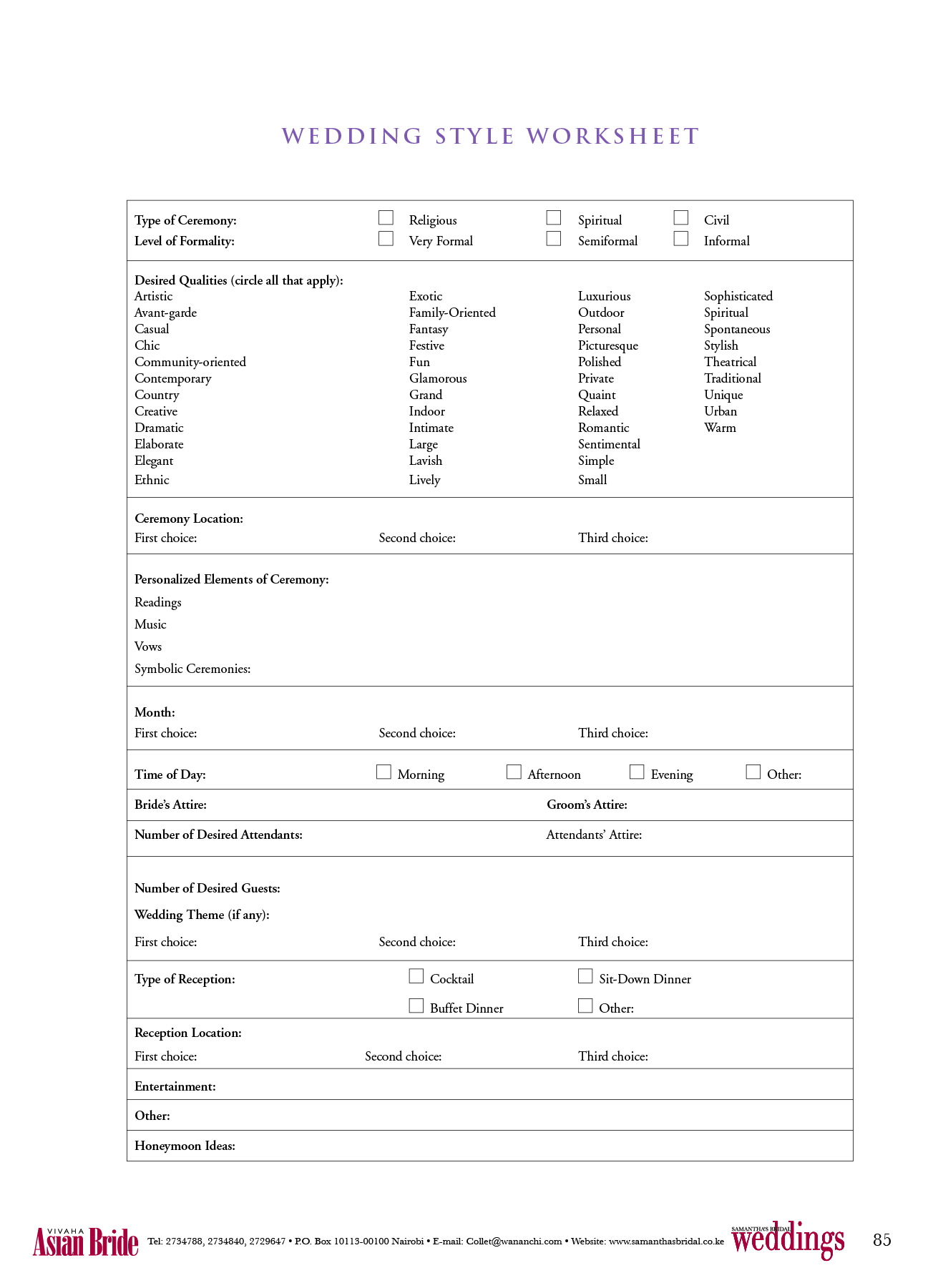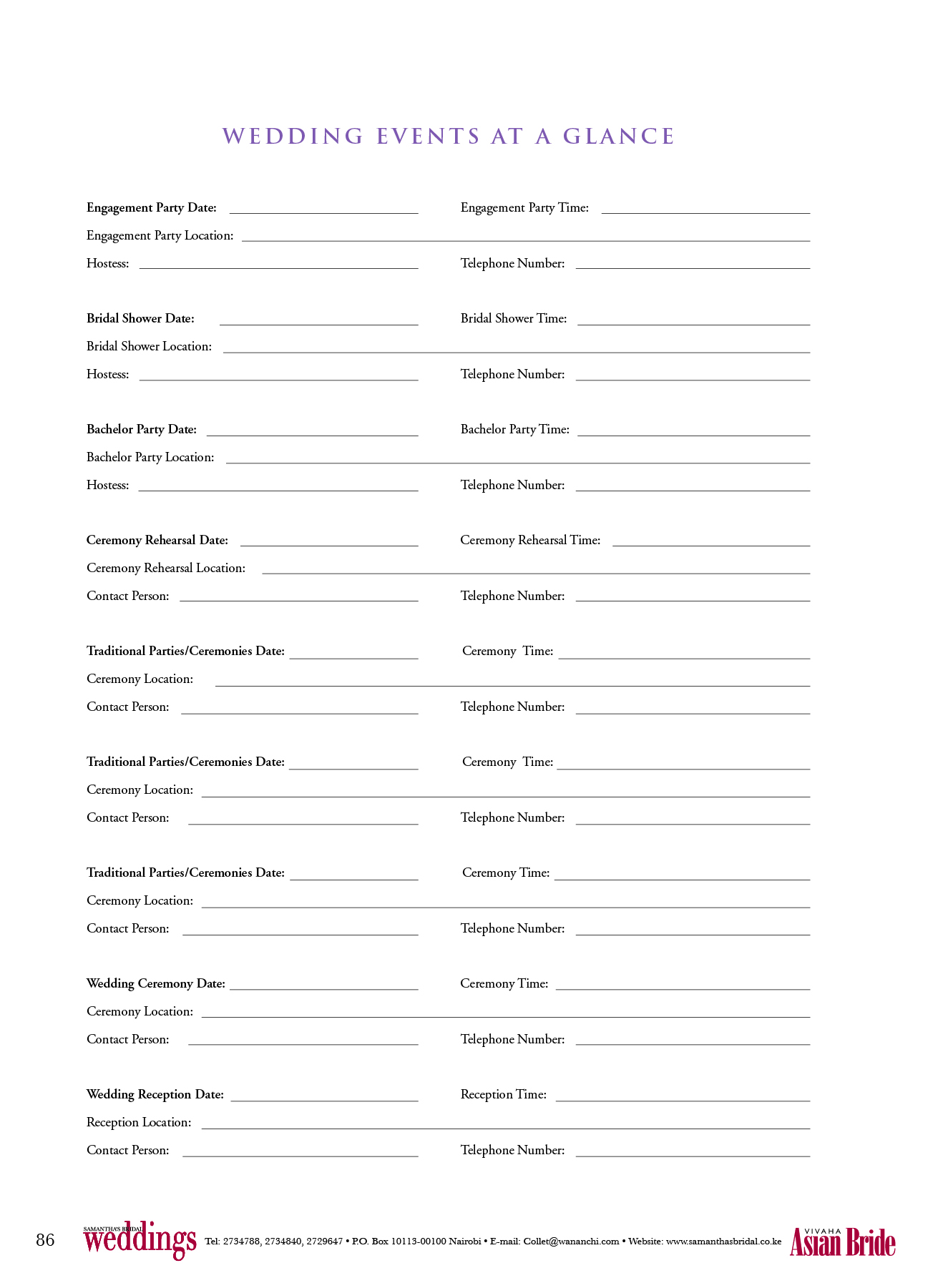Once the engagement glow has faded, it’s now time to sit down and plan for the big day, you’ll find it very hard to get anything accomplished without a good wedding budget. A budget will give you an outline of what you should spend on each item, so as to ensure you don’t spend more than you intend to.
Who’s funding the wedding?
Although in Kenya traditionally the grooms’ parents pay for the whole thing, this has now changed, couples can now both help each other in funding the wedding. If you can pay for the whole thing yourselves, that makes things easier. If you want your families to help you out, or pay for it all, you should have a frank discussion with them about it. You should be prepared to answer questions, such as “How much do you think the whole thing will cost” and some other questions that you might not know the answer to.
There are several options:
- Parents can say that they are contributing a specific amount, and then the couple decides on a wedding budget and makes up any difference themselves.
- Parents can say that they want to pay for specific items such as the bride’s gown, or the catering. The couple then has to figure out how to pay for everything else.
- The couple can set a budget and then ask to split it evenly. This is particularly a good solution for divided families.
- Friends and relatives can set up a wedding committee but remember the African set up you have to be supportive to other people for you also to be supported.
Figure Out a Basic Wedding Budget
Start off by using a wedding budget planning worksheet to figure out the basics (below is a sample of the budget worksheet get the actual worksheet in the Samantha’s Bridal Magazine which is available at our offices).

If you already know some of the costs, such as the hall rental, put the actual figures, and adjust the other figures to make up for it. You can also ask other brides who have had weddings in your area what they spent on vendors to figure out if these numbers are realistic, or need to be adjusted.

Make room for what really matters
Prioritize what’s important to you, choosing 2 to 3 most important items. Writing down questions and filling them may help in this process. You may decide that you want to have a great photographer, but you’re happy to hunt for a bargain on the gown. If you’re having a small wedding, your catering bill won’t be big in the percentage of the budget. You can adjust your budget figures to reflect your priorities.
Save your wedding budget
Start by looking through the budget and crossing off anything that you don’t need. For example if you’re having both the ceremony and reception at one location, you might not need to include transportation. Use your contacts. Don’t be afraid to ask recently married friends who they used and what they paid. Ask friends in the wedding industry to help you out, and give you a discount if possible. If the numbers still aren’t working out, ask yourself what’s really important to you.
Once you’ve set a budget, stick to it. It’s easier said than done, but an important thing to do.



